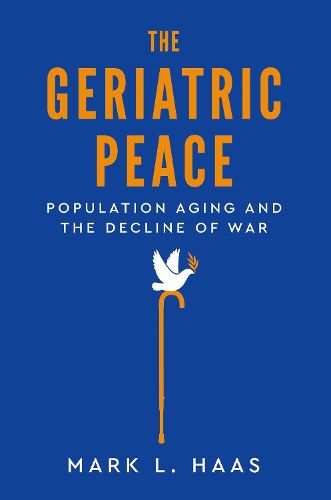Readings Newsletter
Become a Readings Member to make your shopping experience even easier.
Sign in or sign up for free!
You’re not far away from qualifying for FREE standard shipping within Australia
You’ve qualified for FREE standard shipping within Australia
The cart is loading…






The vast majority of the world's countries are experiencing a demographic revolution: dramatic, sustained, and likely irreversible population aging. States' median ages are steadily increasing as the number of people ages 65 and older skyrockets. Analysts and policymakers frequently decry population aging's domestic costs, especially likely slowing economic growth and massive new public expenditures for elderly welfare. But aging has a major yet largely unrecognised international benefit: it significantly reduces the likelihood of international war. Although wars continue to rage in parts of the world, almost none involve aged countries. This book provides a comprehensive and groundbreaking argument why population aging will be a powerful force for peace.
Aging will significantly reduce states' military capabilities available for war while also boosting leaders' and citizens' preferences for peaceful foreign policies. At the same time, the effects of aging will help prevent the emergence of a power transition between the United States and China, which would be a development that is particularly likely to devolve into armed hostilities. If an aged country does initiate war, the effects of aging will create major barriers to military success. The more aging reduces the probability of victory, the greater the disincentives to aggressing. Detailed case studies show how aging has affected the capabilities and preferences in Japan, China, the United States, and Russia.
$9.00 standard shipping within Australia
FREE standard shipping within Australia for orders over $100.00
Express & International shipping calculated at checkout
The vast majority of the world's countries are experiencing a demographic revolution: dramatic, sustained, and likely irreversible population aging. States' median ages are steadily increasing as the number of people ages 65 and older skyrockets. Analysts and policymakers frequently decry population aging's domestic costs, especially likely slowing economic growth and massive new public expenditures for elderly welfare. But aging has a major yet largely unrecognised international benefit: it significantly reduces the likelihood of international war. Although wars continue to rage in parts of the world, almost none involve aged countries. This book provides a comprehensive and groundbreaking argument why population aging will be a powerful force for peace.
Aging will significantly reduce states' military capabilities available for war while also boosting leaders' and citizens' preferences for peaceful foreign policies. At the same time, the effects of aging will help prevent the emergence of a power transition between the United States and China, which would be a development that is particularly likely to devolve into armed hostilities. If an aged country does initiate war, the effects of aging will create major barriers to military success. The more aging reduces the probability of victory, the greater the disincentives to aggressing. Detailed case studies show how aging has affected the capabilities and preferences in Japan, China, the United States, and Russia.